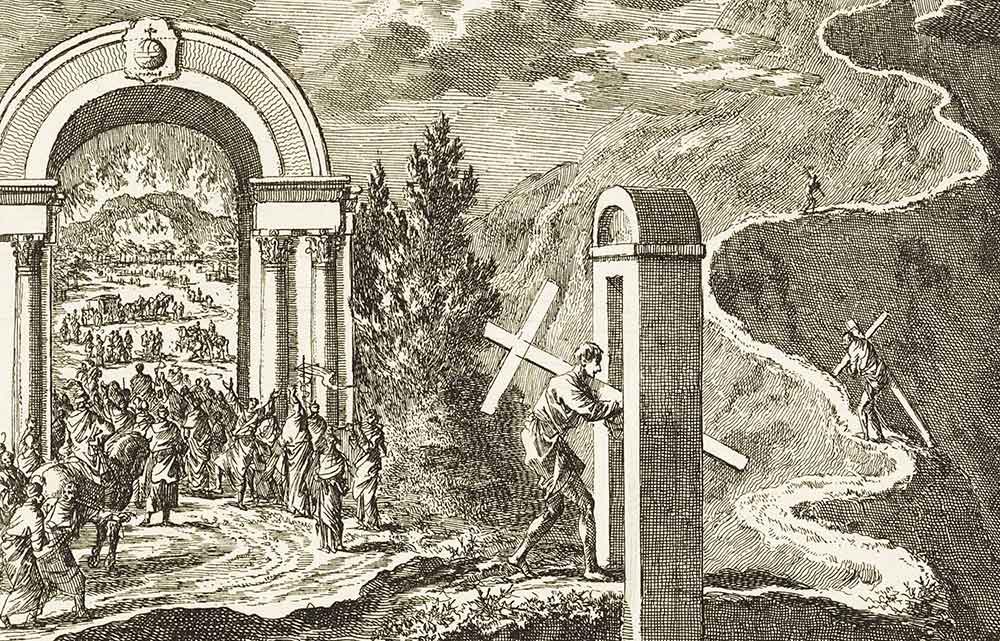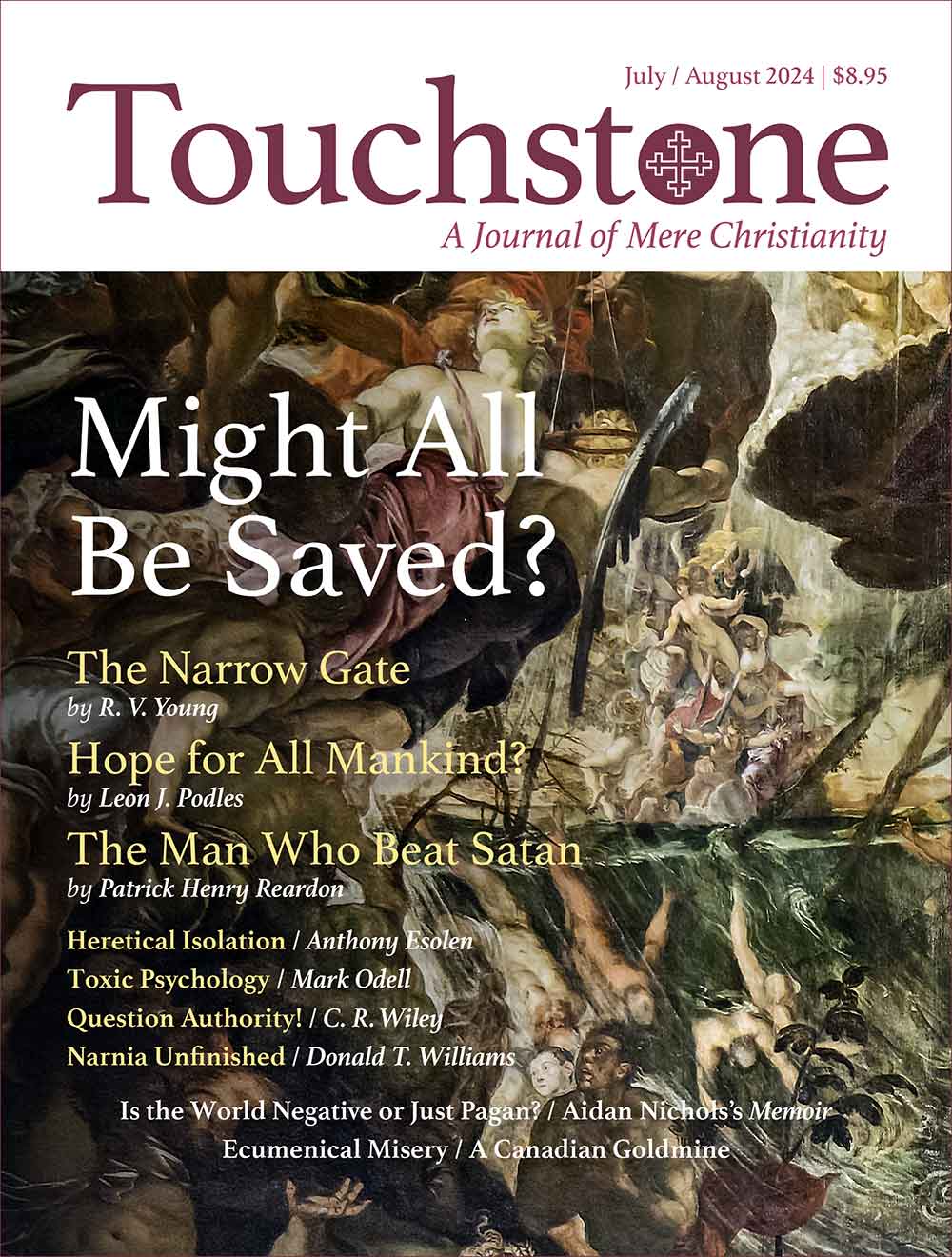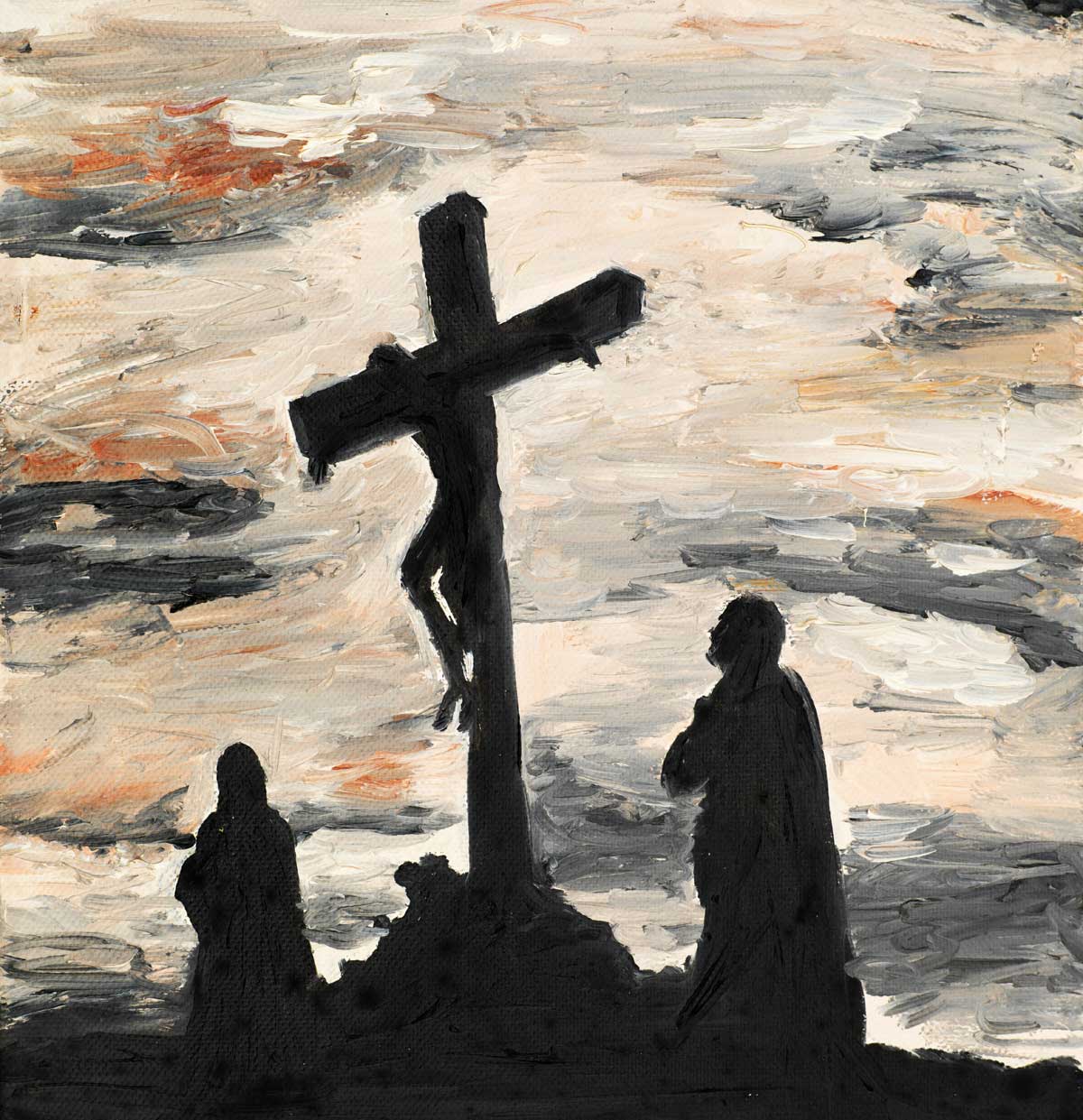The Narrow Gate
Who Says the Broad Way to Destruction Is Forever Closed?
There are few doctrines that less recommend Christianity to the men and women of our time than the proposition that unrepentant sinners will be condemned to an eternity of misery in hell. Doubtless, anyone who has attempted to present the case for Christianity, or even to defend his own belief, in ordinary conversation with an acquaintance has been met with a rejoinder along the lines of “I can’t believe in a God who sends people to hell just for having sex before marriage” or “for not being baptized” or “for not going to church on Sunday”—the list of sins regarded as trivial may be long and varied depending upon the disposition of the interlocutor. The average person who complains in this fashion may even retain a comfortable, though vague, notion of God, but he will probably pay little attention to such a God in which he professes so tepid a belief.
To be sure, there are more sophisticated rejections of the doctrine of eternal punishment in hell of unrepentant sinners, and it is by no means a recent development. Although the doctrine of damnation has been the consistent teaching of the Church, supported by the vast majority of Christian teachers, there have been dissenters at least as early as Origen (AD 185?–254?). In the following century, Gregory of Nyssa (ca. 335–ca. 395) also seems to have maintained that eventually all men, and perhaps all rational creatures, would be saved. Both Origen and Gregory of Nyssa seem to regard hell as similar, if not identical, to purgatory in Catholic teaching. There are a number of other ancient writers, mostly in the Eastern tradition, who teach some form of universal salvation, but the doctrine diminishes and virtually disappears (especially in the West) in the Middle Ages and Early Modern period until it re-emerges among (mostly Protestant) Christians in the eighteenth and nineteenth centuries, gaining strength down to our own times.
By the latter half of the twentieth century, even Catholics of a generally traditional and orthodox disposition were beginning to qualify to some extent the doctrine of eternal punishment in hell, although it remains the teaching of the Catechism of the Catholic Church (1033–1041). Perhaps the most prominent Catholic theologian of this persuasion is Hans Urs von Balthasar, who suggests that, although hell exists, we have no evidence that any soul is actually there. In his very popular and influential book, Catholicism: A Journey to the Heart of Faith (2011), Bishop Robert Barron endorses von Balthasar’s proposition. Although “we must accept the possibility of hell,” he says,
we are not committed doctrinally to saying that anyone is actually “in” such a place. We can’t see fully to the depths of anyone’s heart; only God can. Accordingly, we can’t declare with utter certitude that anyone—even Judas, even Hitler—has chosen definitively to lock the door against the divine love. (257–258)
Hell is thus a logically necessary counterpart to heaven, but eternal damnation is not a necessary corollary to hell.
An Exorbitant Claim
The tentative suggestion that hell is real but empty, a bold step for a Catholic theologian, is not merely unsatisfactory to David Bentley Hart; it is unworthy of serious consideration. His book, That All Shall Be Saved (2019), makes what, he admits, “is an exorbitant and somewhat insolent claim”:
I have very small patience for this kind of “hopeful universalism,” as it is often called. As far as I am concerned, anyone who hopes for the universal reconciliation of creatures with God must already believe that this would be the best possible ending to the Christian story; and such a person has then no excuse for imagining that God could bring any but the best possible ending to pass without there being in some sense a failed creator. The position I want to attempt to argue, therefore, to see how well it holds together, is far more extreme; to wit, that, if Christianity is in any way true, Christians dare not doubt [emphasis in original] the salvation of all, and that any understanding of what God accomplished in Christ that does not include a final apokatastasis in which all things created are redeemed and joined to God is ultimately entirely incoherent and unworthy of rational faith. (65–66)
The belligerence of this assertion evinces a remarkable certitude about God’s intention in creating mankind and the universe and, to borrow a phrase from C. S. Lewis, puts “God in the dock.” Any God who would condemn anyone to an eternity of misery for any reason is an immoral monster and therefore not worthy of worship, therefore not God at all. Such is the gravamen of the argument, which irresistibly recalls Milton’s Satan, persuading Eve not to fear the threat of death for eating the fruit of the tree of the knowledge of good and evil: “Will God,” the Serpent asks, “incense his ire / For such a petty Trespass . . . ? / God therefore cannot hurt ye and be just; / Not just, not God; nor feard then nor obeid: / Your feare it self of Death removes the feare” (Paradise Lost IX.691–693, 700–702).
As the most eminent, as well as the most vehement, proponent of the doctrine of universal salvation, David Bentley Hart’s disquisition offers a convenient occasion for reconsidering Christian teaching regarding hell and damnation. Demonstrating that there is, in fact, a hell of eternal punishment, which does include at least some denizens is, however, less important than dealing with the consequences for the interpretation of sacred Scripture, of our understanding of the earliest fathers of the Church, and of our relationship with God, which the attempt to undermine the belief in eternal punishment entails. Hart’s treatment of Scripture and patristic sources is, frankly, rather careless and cursory; it is his understanding of the moral relation between men and women and our Creator and Savior that really drives his argument.
The Meaning of Matthew 25
Before taking up the moral argument, however, his remarks regarding the status of the teaching in Scripture and in the ancient doctrinal tradition must be considered. He claims that there are a very few passages in the Gospels that may be construed as teaching the reality of eternal damnation in hell and a few more in the book of Revelation. “The whole idea,” he asserts, “is . . . entirely absent from the Pauline corpus, as even the thinnest shadow of a hint. Nor is it anywhere patent in any of the other epistolary texts” (92). These asseverations do not, however, bear up under scrutiny.
R. V. Young is Professor of English Emeritus at North Carolina State University, a former editor of Modern Age: A Quarterly Review, and the author of Shakespeare and the Idea of Western Civilization (Catholic University of America Press, 2022). He and his wife are parishioners at St. Ignatius of Antioch Church in Tarpon Springs, Florida. They have five grown children, fifteen grandchildren, and three great-grandchildren. He is a senior editor of Touchstone.
subscription options
Order
Print/Online Subscription

Get six issues (one year) of Touchstone PLUS full online access including pdf downloads for only $39.95. That's only $3.34 per month!
Order
Online Only
Subscription

Get a one-year full-access subscription to the Touchstone online archives for only $19.95. That's only $1.66 per month!
bulk subscriptions
Order Touchstone subscriptions in bulk and save $10 per sub! Each subscription includes 6 issues of Touchstone plus full online access to touchstonemag.com—including archives, videos, and pdf downloads of recent issues for only $29.95 each! Great for churches or study groups.
Transactions will be processed on a secure server.
more on Christianity from the online archives
more from the online archives
calling all readers
Please Donate
"There are magazines worth reading but few worth saving . . . Touchstone is just such a magazine."
—Alice von Hildebrand
"Here we do not concede one square millimeter of territory to falsehood, folly, contemporary sentimentality, or fashion. We speak the truth, and let God be our judge. . . . Touchstone is the one committedly Christian conservative journal."
—Anthony Esolen, Touchstone senior editor













